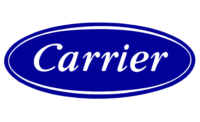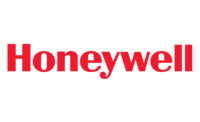Raytheon Technologies Corporation announced on Friday, April 3, that the all-stock merger between the company and United Technologies Corporation (UTC) has been completed. This merger follows the completion of the spin-offs of UTC’s Carrier and Otis businesses. UTC first announced its intention to separate its commercial businesses into independent entities on Nov. 26, 2018.
“Our decision to separate United Technologies is a pivotal moment in our history and will best position each independent company to drive sustained growth, lead its industry in innovation and customer focus, and maximize value creation,” said Gregory Hayes in November 2018. He was UTC’s chairman and CEO at the time, but is now serving as CEO for Raytheon. “Our products make modern life possible for billions of people. I’m confident that each company will continue our proud history of performance, excellence and innovation while building an even brighter future. As standalone companies, United Technologies, Otis and Carrier will be ready to solve our customers’ biggest challenges, provide rewarding career opportunities and contribute positively to communities around the world.”
Carrier, a global provider of HVAC, refrigeration and fire and security technologies, has begun ‘regular-way’ trading on the New York Stock Exchange (NYSE) under the symbol CARR. The company says it has more than 53,000 employees, offering solutions in more than 160 countries.
“Against the backdrop of unprecedented global uncertainty, Carrier and its employees remain focused and continue to solve critical challenges — from improving indoor air quality, to protecting the world’s food and pharmaceutical supply and keeping people safe and secure,” said Carrier President and CEO Dave Gitlin. “I am honored to lead this fantastic company and now, more than ever, I am incredibly proud of the perseverance and resiliency of our talented workforce. For more than a century, Carrier has been a symbol of excellence, and today, as a standalone company, we have defined our own strategy, vision, culture and priorities. We have an unmatched legacy and look forward to delivering sustainable long-term growth to our shareowners and other stakeholders.”
As an independent company, Carrier says it will have a greater focus and enhanced agility based on its own distinct operating priorities and strategies for long-term growth and profitability, including strengthening and growing its core businesses, extending its product range and geographical coverage and expanding service and digital offerings.
Headquartered in Waltham, Mass., Raytheon Technologies is one of the largest aerospace and defense companies in the world with approximately $74 billion in pro forma 2019 net sales and a global team of 195,000 employees, including 60,000 engineers and scientists.
Raytheon Company shares ceased trading prior to the market open on April 3, 2020, and each share of Raytheon common stock has been converted in the merger into the right to receive 2.3348 shares of United Technologies common stock (previously traded on the NYSE under the ticker symbol UTX). With the closing of the merger, United Technologies’ name has changed to Raytheon Technologies Corporation, and its shares of common stock began trading April 3 under the ticker symbol RTX. United Technologies shareowners will continue to hold their shares of United Technologies common stock, which now constitute shares of common stock of Raytheon Technologies Corporation.
The combined company expects to introduce breakthrough technologies at an accelerated pace across high-value areas such as hypersonics, directed energy, avionics and cyber security. In addition, Raytheon Technologies has a strong balance sheet and cash flows to support critical business initiatives, including company and customer-funded R&D, according to the company.
"Raytheon Technologies brings together two companies with combined strengths and capabilities that make us uniquely equipped to support our customers and partners during this unprecedented time,” Hayes said. “We will also play our part in the war on the COVID-19 pandemic, including doing everything we can to keep our employees around the globe safe and well. As we move forward, Raytheon Technologies will define the future of aerospace and defense through our focus on innovation, our world-class people and our financial and operational strength to create long-term value for our customers and shareowners."
"Today, we introduce Raytheon Technologies as an innovation powerhouse that will deliver advanced technologies that push the boundaries of known science," said Tom Kennedy, executive chairman of Raytheon Technologies. "Our platform-agnostic, diversified portfolio brings together the best of commercial and military technology, enabling the creation of new opportunities across aerospace and defense for decades to come."
Raytheon Technologies has four segments focused on high-priority areas for customers. Raytheon Intelligence & Space specializes in developing advanced sensors, training and cyber and software solutions. The segment is led by President Roy Azevedo, headquartered in Arlington, Virginia, with approximately $15 billion in pro forma 2019 net sales. Raytheon Missiles & Defense provides advanced end-to-end solutions to detect, track and engage threats. The segment is led by President Wes Kremer, headquartered in Tucson, Arizona, with approximately $16 billion in pro forma 2019 net sales.
Raytheon Technologies’ executive leadership team is comprised of Tom Kennedy, executive chairman; Greg Hayes, chief executive officer; and Toby O’Brien, chief financial officer.



